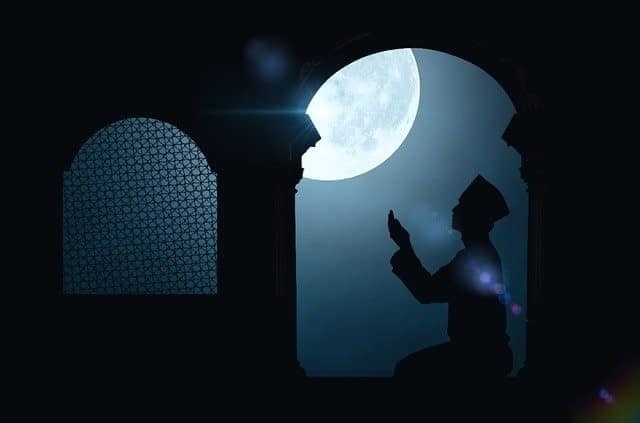Guidance for Ramadan: Insights from Habib Umar Bin Hafiz

Habib Umar bin Hafiz (May Allah Preserve Him) said:[1]
Leaving Sha‘ban with Excellence
Make sure that you leave Sha‘ban in the best of states, for Allah records the rewards that we will receive and the supererogatory actions that we will perform before Ramadan enters. He also records the evil deeds and wretchedness of those deprived of the blessings of Ramadan. What will be your state on the last Friday of Sha’ban and the night before it? Attend the gatherings at the end of this month with a heart focused on the All-Merciful.
Embracing the First Night of Ramadan
Prepare for the first night of Ramadan, for on this night, Allah gazes at His creation, a particular gaze unique to this Umma. Allah will never punish the one upon whom He gazes.[2] Look at how many gifts have been given to this Ummah – when Ramadan enters, the gates of the Garden are open, and the gates of the Fire are shut.[3]
If someone destined for the Fire dies during Ramadan, he will see that the gates of the Fire are closed!
The odor that comes forth from the mouth of the fasting person is sweeter in the sight of Allah than the scent of musk!
Every night, Allah decrees the safety of 600,000 people from the Fire (in some narrations, one million). Then, on the last night, He decrees the safety of the same number of people that he decreed every night of the month. He also decrees the safety of others during the day – particularly at sunrise and sunset.
Dua: The Essence of Worship
Not to mention what happens on Laylat al-Qadr. Allah makes us amongst those who reach that night and attain all it contains. Ask Allah in the best ways because Allah does not accept a dua from a heedless heart. Likewise, a dua from a sound heart is more likely to be accepted than a dua from a fluent tongue.
Sayyida A’isha asked Allah’s Messenger (Allah bless him and give him peace) what she should ask for if she knew it was Laylat al-Qadr.
He replied: “O Allah, truly You are all-Pardoning, You love to pardon so pardon us.”[4]
Invocation for Ramadan: A Practice of the Heart
He also said (Allah bless him and give him peace): “Do four things in abundance: two things with which you please your Lord, and two things you cannot do without. The two things that please your Lord are to testify that none is worthy of worship other than Allah and to seek His forgiveness. The two things you cannot do without are asking Allah for Paradise and seeking refuge in Him from the Fire.”[5]
So say these things in abundance, for they are the best things for which you can use your tongue. Say them in your homes, the streets, the mosques, not just at Iftar or after Tarawih.
[Based on these two hadiths, the scholars and people of Tarim repeat the following dua throughout the month of Ramadan:
أشْهَدُ أن لا إلهَ إلا الله نَسْتَغْفِرُ الله نسأَلُكَ الجنَّةَ ونَعُوذُ بِكَ مِنْ النَّار (3)
Ashadu alla ilaha illallah, nastaghfirullah, nas’aluk ’l-jannata wa na‘audhu bika min an-nar
“I testify that there is nothing worthy of worship other than Allah, and we seek the forgiveness of Allah. We ask You for Paradise and take refuge in You from the Fire.” (3 times)
اللهمَّ إنَّكَ عَفُوٌ تُحِبُّ العَفْوَ فَاعْفُ عَنَّا (3) يا كَرِيم
Allahumma innaka ‘afuwun tuhibbu-l‘afwa f‘afwa ‘anna
“O Allah, truly You are all-Pardoning, You love to pardon, so pardon us” (3 times). On the third time, say “O Most Generous” (Ya Karim).]
Allah give us the biggest portion of all goodness. Make Ramadan a cause of rectification and the removal of tribulations.
[1] Jalsat al-Ithnayn, Dar al-Mustafa, the night of 25th Sha‘ban 1432/25th July 2011
[2] Narrated by al-Bayhaqi
[3] Narrated by al-Bukhari and Muslim
[4] Narrated by Ahmad, Ibn Majah, and Tirmidhi with a sahih chain of transmission
[5] Narrated by Ibn Khuzayma
